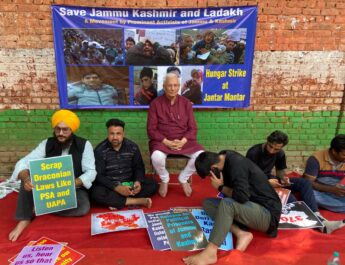From Our Bureau
NEW DELHI: The Supreme Court on Monday quashed the Gujarat government’s remission in the Bilkis Bano case, sending all 11 convicts back to the jail, holding that the Gujarat government was not competent to pass the remission orders on August 15, 2022.
The court said that the Maharashtra government within whose jurisdiction tne offence was tried and sentenced was allowed to decide the remission of sentence of the convicts. The divisional bench of Justices B V Nagarathna and Ujjal Bhuyan delivered the verdict. Bilkis and others had approached the top court against the remission order in November 2022.
While pronouncing the verdict, the Bench said one of the convicts had suppressed facts and misled the apex court by making false statements.
The Bench noted that the government within whose jurisdiction an offender is tried and sentenced is allowed to decide the remission of the convict’s sentence. It held that the Gujarat government usurped the power of the Maharashtra government by deciding the remission plea, as it is the Maharashtra dispension which had jurisdiction to decide the remission.
The top court said the Gujarat government had acted in tandem with the convicts ingranting them remission which vindicated the SC’s earlier order by which the trial was shofted outside the state. It aid the convicts cannot be allowed to be out of jail after their remission is quashed and directed them to report to jail authority within two weeks.
The top court’s ruling comes after a slew of petitions sough quashing of the Gujarat government’s decision to remit the sentences of 11 convicts who had gang-raped and killed 14 members of her family during the 2002 communal riots in Gujarat. Bilkis was also one of the petitioners.
The Bench had wrapped up the proceedings in October 2023 and reserved its verdict after hearing all the parties, including the convicts.
During the hearing, the Centre and Gujarat government had justiified the decision to allow their premature release, saying they did not commit a “rarest-of-rare crime” and should be given a chance to reform and reintegrate into the society.
The Bench asked why the remission policy was being implemented selectively and many other prisoners, who fulfilled the criteria of remission, continued to languish in jail. The court





